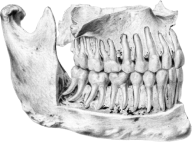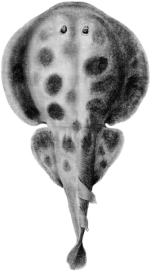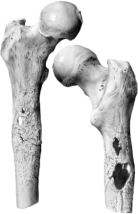
Microscopic view of a flea, from a microscope slide prepared by John Quekett, 1840–60
Research
The Museums of the Royal College of Surgeons of England welcome opportunities for collaborative research based around RCS England's diverse collections. They are relevant to a wide range of fields of study including: history of medicine, medical humanities, history of art, biomedicine dentistry, osteology, bioarchaeology, museology, evolutionary anthropology, climatology, veterinary science and wildlife conservation. Research may be based on collections, texts, objects or practices.
How to arrange research
- We recommend that potential researchers use the Royal College of Surgeons of England collections online catalogue SurgiCat to explore material.
- Read Guidance for Museum Researchers for information on arranging research with collections, fees and what to expect during your visit.
- Read the Museums Research Policy
- To book study time or enquire about research opportunities please contact the Museums department by emailing [email protected]
Important Notice
Due to the relocation of the museums offsite store research access will be limited to certain collections throughout 2026. This includes many items from the Surgical Instrument collection (RCSIC) and the Odontological Collection (RCSOM).
We will endeavour to support research requests as much as possible throughout this time, but some requests will not be able to be supported until 2027.
Please contact [email protected] if you have any questions about this.
Examples of previous research
London atlas of human tooth development and eruption:
Dr. Sakher Al Qatahni and Dr. Helen Liversidge, Institute of Dentistry, Queen Mary University of London (QMUL), using the Maurice Stack collection to contribute to a comprehensive atlas with diagrams to estimate age using tooth development and alveolar eruption.
Gorilla pathology study group:
Professor John E Cooper, Consultant Veterinary Pathologist, examining gorilla material as part of a collaborative study of skeletal and dental pathology in order to understand and promote better the health and welfare of gorillas in the wild.
Leopard seal research:
Associate Professor Tracey Rogers, University of New South Wales, investigating how climate change has impacted Antarctic food webs by looking at diets of seals.
Dental stigmata of congenital syphilis:
Professor Simon Hillson, University College London (UCL), studying the characteristic dental enamel defects of individuals with congenital syphilis.
3D scanning of cranial morphology among African apes:
Jason Massey, University of Minnesota, examining the degree and pattern of extant primate sexual dimorphism in order to apply methods to the human fossil record.
Historic cheetah phylogeography project:
Léna Godsall Bottriell and Paul Bottriell, The Rex Foundation, investigating (with University Veterinary Medicine Vienna) cheetah's evolutionary development in relation to geography, analysing mitochrondrial, nuclear DNA and microsatellites in tissue samples from cheetah's recent former African and Asian range to determine divergence times and distinctions between the geographic races described over time.
Legacies of the repatriation of human remains:
Sarah Morton, Queen Mary University of London (QMUL), focusing on the repatriation of human remains from the Hunterian Museum collections to indigenous groups in Australia, New Zealand and Hawaii.
Hunterian Bicentenary Fellowship:
Dr Wendy Birch, University College London (UCL), exploring musculoskeletal differences between primates preserved in the Osman-Hill collection. The project seeks to provide a detailed anatomy resource across the main groups of primates and to demonstrate the relevance of museum specimens to modern anatomical teaching.


